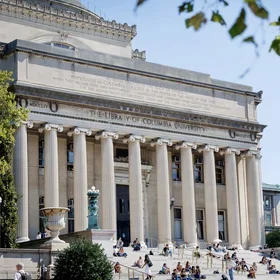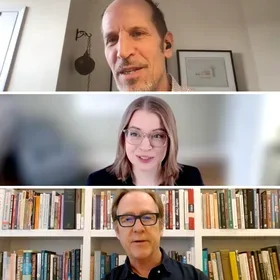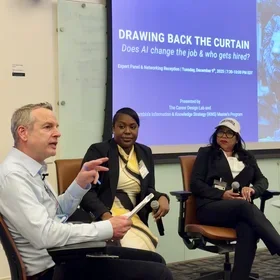Columbia’s Earth Institute and the School of Professional Studies are teaming up to offer a new master’s program in Sustainability Science. The new program, which fulfills the need for formal training in the technical dimensions of sustainability, is designed to update and enhance the skills of environmental professionals, applied scientists, and engineers in the fields of Earth systems observation, analysis, projection, and remediation.
Sustainability Science offers a curriculum that emphasizes the practical application of science in sustainability. The program, in other words, is geared toward training sustainability practitioners who have the scientific know-how to help organizations improve their environmental performance.
The graduates of this program learn to:
- Use scientific methods to observe and monitor the sustainability of their organizations;
- Analyze and model data to understand current and future environmental impacts;
- Employ innovative scientific tools to respond to pressing sustainability issues, and
- Integrate science-based solutions in the decision-making of their organizations.
Courses cover topics ranging from soil and groundwater contamination, remote sensing, and the Earth’s climate system, to environmental data visualization and sustainability policy. The program culminates in a Capstone Workshop project that calls on students to integrate their knowledge in addressing a technical sustainability issue for a real-world client in the government or nonprofit sector.
To accommodate full-time working professionals, the program offers a flexible curriculum, a full or part-time course of study, and evening classes–all at Columbia’s world-famous Morningside Heights Campus in Manhattan, New York.
Successful applicants will have substantive preparation in math, science, engineering, or related fields. A typical applicant to the M.S. Sustainability Science program could be a recent undergraduate, an early career environmental professional, or a mid-career executive who is either looking to advance in, or make the transition to the sustainability field. Students meet their career goals by studying the scientific methods and new tools that can be used in the pursuit of sustainability.
The faculty of this program are primarily scientists at the Earth Institute’s Lamont Doherty Earth Observatory, the world’s leader in the earth sciences. Lamont Research Professor Arthur Lerner-Lam serves as program director whilst continuing to pursue his role as the deputy director of Lamont. He is joined on the faculty by some of the world’s leading experts in monitoring, analysis, and remediation of environmental impacts.
The program will welcome its inaugural class in late January 2018. Applications are due by November 15, 2017.


